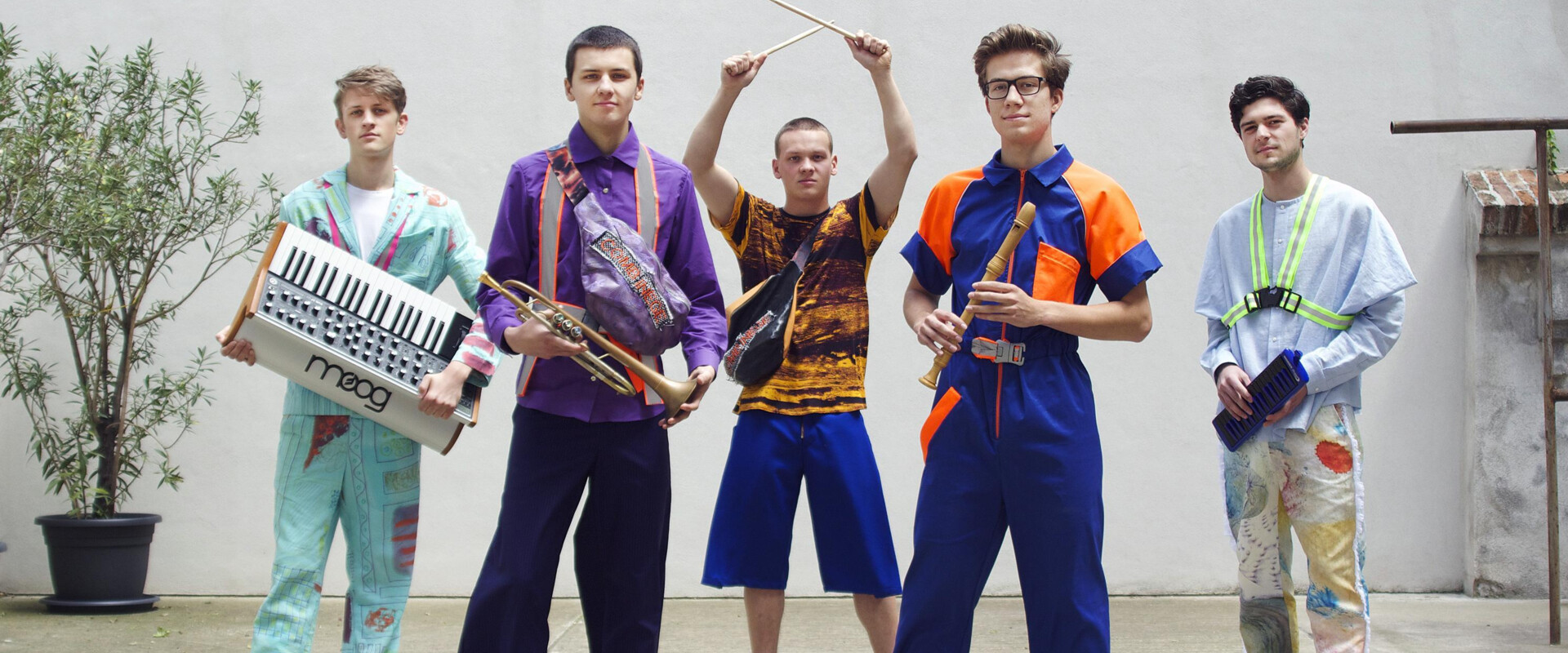Interview with Chez Fria
This week, we had the pleasure of interviewing Ferdinand Rauchmann and Paul Widauer from Chez Fria, a band from Salzburg. The two gave us fascinating insights into their music, the history of their band, and the creation of their latest album.
Ferdinand: Gladly! I'm Ferdinand Rauchmann, originally from Salzburg. I'm a sound engineer and have been studying piano for quite a while. These days I live and study in Vienna, but I’m still very active in the Salzburg music scene – especially in jazz. I’m particularly excited that we get to play at the Saalfelden Festival this year.
Paul: I'm Paul Widauer, I play drums and saxophone, and I've been the drummer for Chez Fria since the very beginning. For me, it’s a huge honor to perform at the Jazzfestival Saalfelden – I have a personal connection to the town through my family and have been following the festival for as long as I can remember. That makes it all the more special to now be on stage myself. It feels like a small dream come true.
Ferdinand: We all went to the Musisches Gymnasium in Salzburg, so we’d known each other for quite a while. Each of us came from a different musical background: Felix, for example, from baroque music, I was more into classical, and Lorenz was already exploring jazz early on. Then one evening, Lorenz said to Felix: “Why don’t you bring your recorder, and we’ll try a fusion of our two instruments – in a jazz context.” That’s how the basic idea for the project was born.
Shortly after, we got a request from Dorothee Oberlinger, who curates the Potsdam Sanssouci Music Festival. She asked if we’d be interested in performing a one-hour concert in that style. The invitation came on short notice – I think we had about two months to prepare. Lorenz then put the band together, and we locked ourselves in Maxi’s recording studio for a week to really dive into the project. That’s how the band was essentially founded from scratch – and Chez Fria was born.
Paul: That’s actually a funny story! A lot of people think the name is French and ask us, “What kind of name is that? Where does it come from?” But the explanation is much simpler. Felix and Lorenz were sitting in the Salzburg bar Chez Roland at the time, talking about the project. They stayed there until the early morning hours – and as a joke, they said: “Schee fria,” which means “really early” in Salzburg dialect. And since it was really schee fria in the bar that night, the name Chez Fria was born. I honestly think there couldn’t be a more fitting name for this band.
Paul: First of all, I think it’s important to say that everyone in the band has their own individual inspirations.
Ferdinand: For me, Herbie Hancock was a huge inspiration – because he explored so many different styles and was also incredibly visionary as a keyboardist. Apart from that, I find it a bit hard to say which genres I prefer, because I honestly enjoy almost everything – maybe except for Schlager. So my playlist includes a pretty wide range of music. And I think that’s true for the whole band: everyone brings in different influences, and that’s exactly what makes our music so diverse. I really think you can hear that – the sound of Chez Fria is shaped by this variety.
Paul: We worked on this album for about five years. In the best sense, it’s the result of our shared creative process: we write all the songs as a group of five – always together. When we’re in the studio, we spend a lot of time with each other, and everyone contributes their ideas. Some pieces we wrote early on are no longer part of our set, simply because they no longer fit us stylistically. On the other hand, our title track Kunst & Fuge is included on the album in a short version. I think the album really reflects our working process and the development of the band. During live performances, we also play pieces that aren’t on the album – and that creates a nice arc throughout the concert.
Ferdinand: Exactly. Since we released the album on vinyl, the format was naturally limited – but that actually helped us focus on what was essential. What makes the album special is how we bring together different improvisational styles – not just jazz improvisation, but also improvisation from the 16th and 17th centuries, which is an area Felix is truly an expert in.
Paul: I’ve been connected to the festival a few times before. Now that we get to perform there ourselves, it really feels like a small lifelong dream coming true.
Ferdinand: I’m especially excited about the diverse audience. It’s incredibly interesting to see how people – who might have actually come for completely different acts – suddenly react to our mix of baroque, jazz, and improvisation. We’re hoping to catch them a bit off guard with our sound – in the best possible way.


